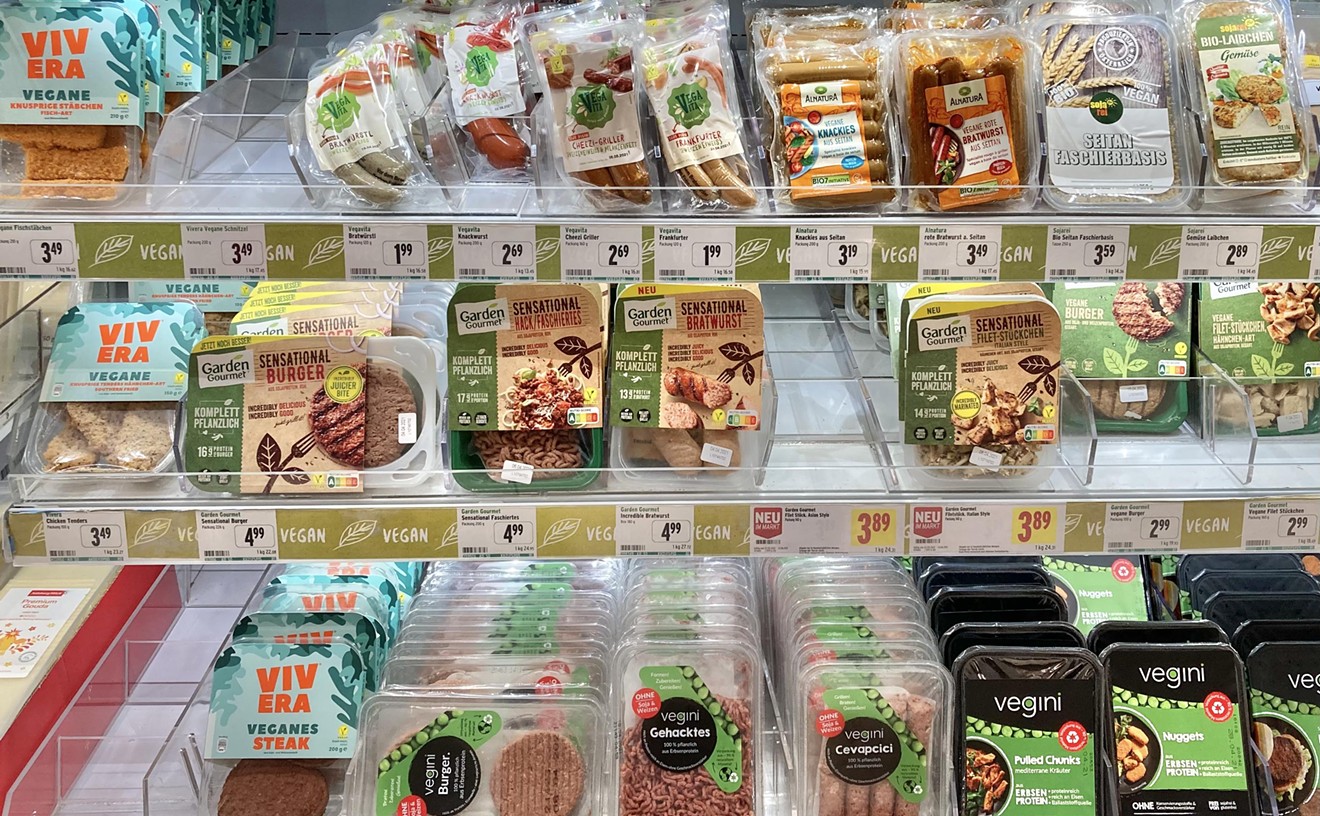But the stuff is actually millennia old. And it really isn't asparagus at all, if the truth be told.
It's salicornia, a salt-water-tolerant plant that thrives on water only ocean-dwelling creatures could love. Salicornia is a delicacy that's been prized in both fresh and pickled form for centuries in Europe.
After all those years of testing and tweaking, Seaphire has finally gotten its retail distribution network operating and is bringing sea asparagus and gourmet products using the salty succulent to a grocery store near you.
Watch for them at places like AJ's Purveyor of Fine Foods, which should soon be carrying plastic clamshell boxes of the fresh version in 2- and 4-ounce sizes, priced between $2.25 and $4.50.
The succulent, which grows wild along coastal areas in Northern Europe, Canada and Oregon, is known variously as marsh samphire, glasswort and sea beans in England, salicorne and pousse pierre in France. Sea asparagus was also called chicken's claws in colonial America, where it was long considered a summertime delicacy, because it does resemble small, green chicken's feet. Ancient Greeks and Romans used briny samphire in salads and ate it lightly steamed as a vegetable. Even Roman naturalist Pliny the Elder wrote about samphire in the first century A.D.
"George Washington used to eat salicornia," notes John Mariner, chief marketing officer of Seaphire International. "He actually made reference to the fact that he had sea beans during the short harvesting season in May and June."
But the commercial cultivation of salicornia is new. And it's a direct result of research that began with a desalinization project headed up years ago by Seaphire International's chairman, Carl Hodges, when he was director of the Environmental Research Laboratory at the University of Arizona in Tucson. It's a perfect example of recycling and utilizing every part of an environmentally friendly commercial crop -- ideal for Third World countries that are long on unfarmable coastal land and short on the fresh water necessary to raise run-of-the-mill food crops.
Salicornia is one of three crops grown by Seaphire -- the company also raises shrimp and a mild white fish called tilapia -- using recycled salt water. Sea water is pumped to an inland well, where it's filtered and then funneled into company-created shrimp hatcheries. The resultant "shrimp water" is then pumped to coastal tilapia ponds. The enriched water is ultimately used to irrigate large fields of salicornia, rather than pumping it back into the ocean where it would be a pollutant.
Naturally high in vitamins A and C, as well as iodine, calcium, iron and other trace minerals and micronutrients found in salt water, fat-free salicornia can be prepared and eaten as a vegetable, garnish or relish. Its seeds can be replanted and used to make cholesterol-free oil. The meal left after crushing the seeds for oil can be ground into a protein-rich, gluten-free flour for bread products. Dried whole, salicornia makes great animal fodder; it can also be converted into particle board or pressed into fire logs, an asset in places like parts of India and Africa that have no available fuel.
In Eritrea, Africa, where Seaphire has entered a joint venture with the government of the former colony of Ethiopia, "they have no lumber or timber industry," Mariner notes. "No edible oil industry, no commercial oil industry, no crop of exportable size that they can make money on. We're able to go into a Third World country like that and start a project like this."
For now, Seaphire is concentrating on educating the American public about the joys of its proprietary salicornia, which it grows for U.S. and Canadian distribution on three large farms in Puerto Peñasco, Mexico. Sold under the brand name Seaphire sea asparagus, the raw version of the new gourmet veggie, soon to be available locally, has a shelf life of about two weeks with proper refrigeration. And don't try to freeze fresh sea asparagus -- it becomes mushy like frozen lettuce, according to Mariner.
If you can't wait to try it, head to Le Fermier where chef Christopher Gross has been using Seaphire sea asparagus for the last year in several recipes he's developed, including a fillet of sea bass with sea asparagus sauce.
Seaphire is also introducing a vinegary salsa made with salicornia, corn, stewed tomatoes and a variety of herbs and spices, as well as an oil-based version with sun-dried tomatoes that can be used as a dip, marinade or side relish for fish and chicken. Both get thumbs-up from me; the vinaigrette style in which these are prepared nicely balances the saltiness of the sea asparagus, which, in its fresh form, has the taste and texture of a very salty green bean with a hint of the sea in it.
The real sea asparagus crowd-pleaser, though, is Coastal Crisps, Seaphire's version of French-fried junk food. Fresh sea asparagus is dredged in a spiced flour mixture created by the same people who have developed the Bloomin' Onion batter mix. It's then dipped in a batter made from the same mix and fried in vegetable oil. I used a longtime Manhattanite, together with a stockbroker and his spouse from Goshen, Indiana (population 25,000), as guinea pigs for taste trials. All proclaimed appreciatively that Coastal Crisps are potentially addictive.
The father of our country, the Big Apple and the heartland of America have spoken on sea asparagus -- better stock up now.










